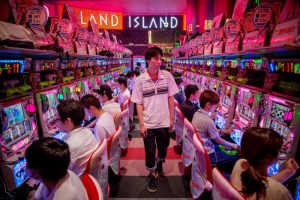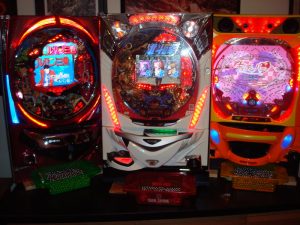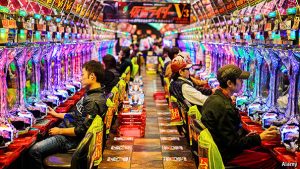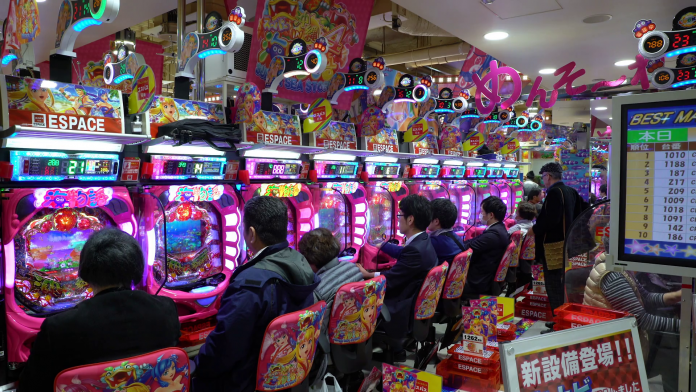Japanese lawmaker Takashi Takai is questioning the “moral” suitability of pachinko for the Japanese gambling market.

Should the pachinko industry take part in Japan’s casino market?
 Takai, who represents the Constitution Democratic Party of Japan in the Lower House, has said that Pachinko has been discussed a lot recently because it is said many of its players in the country have become addicted to the game. According to the Asian Gaming Brief, the lawmaker has forwarded a number of questions to the government because he wants to establish the game’s moral fitness for the casino industry.
Takai, who represents the Constitution Democratic Party of Japan in the Lower House, has said that Pachinko has been discussed a lot recently because it is said many of its players in the country have become addicted to the game. According to the Asian Gaming Brief, the lawmaker has forwarded a number of questions to the government because he wants to establish the game’s moral fitness for the casino industry.
Japan’s National Diet has been looking into ways of minimizing the vices caused by gambling as it prepares to legalize gambling in the country. Several pachinko operators have already shown an interest in taking part in the development of the casinos.
Japan’s lawmakers are in the process of drafting regulations that will act to protect Japanese players and reduce the cases of gambling addiction. Takai states the pachinko industry is the main cause of addiction in the country, but it has done close to nothing to help protect its consumers.
Crackdown through regulation
 Pachinko machines, which are basically hybrids of slot and pinball machines, have been popular in Japan for quite a number of years. They can be seen lining the streets of virtually every town and city in Japan. The pachinko machines are classified as amusements, and because of that, they have been able to survive the harsh regulations that have been applied to gambling in the country. Another main reason why they are not classified as gambling machines is that pachinko does not directly award cash prizes to the players. The reward comes in the form of tickets that the players can then swap in lieu of the balls they captured in the game. The tickets can then be exchanged elsewhere for money.
Pachinko machines, which are basically hybrids of slot and pinball machines, have been popular in Japan for quite a number of years. They can be seen lining the streets of virtually every town and city in Japan. The pachinko machines are classified as amusements, and because of that, they have been able to survive the harsh regulations that have been applied to gambling in the country. Another main reason why they are not classified as gambling machines is that pachinko does not directly award cash prizes to the players. The reward comes in the form of tickets that the players can then swap in lieu of the balls they captured in the game. The tickets can then be exchanged elsewhere for money.
But, in the wake of the possibility of gambling being legalized in the country, lawmakers have been forced to face the problem that gambling poses to Japanese society and examine how pachinko machines have contributed to the situation. In the past, the government has put measures in place that have reduced the number of payouts the machines can give at any one time. This has drastically affected the smaller operators.
The Tampering Scandal
 In his quest to prove that the pachinko machines are not suitable for the Japanese casino market, Takai referenced a 2015 scandal in which pachinko manufacturers tampered with the machines. This case sparked public outrage and subsequent investigations by the government. Takai has stated that with the scandal taking place just a few years ago if pachinko were allowed to be a part of the industry, it should undergo strict scrutiny.
In his quest to prove that the pachinko machines are not suitable for the Japanese casino market, Takai referenced a 2015 scandal in which pachinko manufacturers tampered with the machines. This case sparked public outrage and subsequent investigations by the government. Takai has stated that with the scandal taking place just a few years ago if pachinko were allowed to be a part of the industry, it should undergo strict scrutiny.
In his written statement, Takai also noted that the NPSC (National Public Safety Commission) and prefectural public safety commissions have both failed in their mandates and are not able to hinder large-scale tampering from taking place. This, he argued, therefore, makes them unqualified to supervise the gambling industry. He proposes that a different agency be given the oversight authority.
In a recent study by Yano Research Institute, which is based in Tokyo, more than 420 pachinko cafes have closed since 2017. It also found that 177 pachinko companies, which is more than 5 percent the total number of operators, went out of business.
In recent years, pachinko has been experiencing a decline, much like other traditional casino games, because of Millennial disinterest. The tightening of regulations and the possibility of it being excluded from the soon-to-be-legalized casino market is not doing the game any favors.
Disclaimer: All images are copyright to their respective owners and are used by USA Online Casino for informational purposes only.












